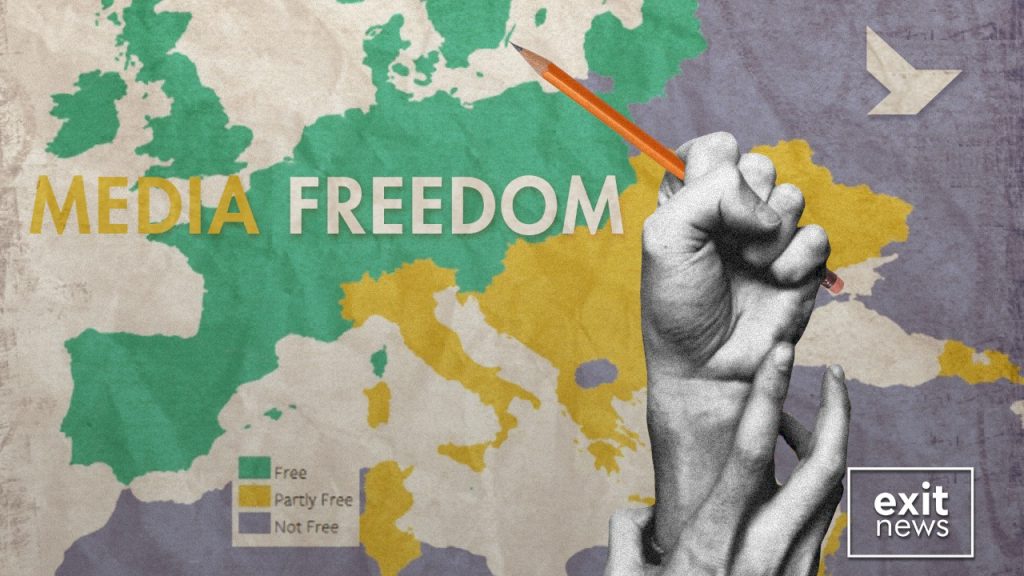
Please Follow us on Gab, Minds, Telegram, Rumble, Gab TV, GETTR
Greece has recently passed a draconian media law, imposing prison sentences on those it thinks publish fake news. A lack of concrete condemnation from Brussels is not only a disservice to the Greek people, but it gives power to autocratic Balkan leaders waiting in the wings.
Under the guise of fighting disinformation during the pandemic, Greek authorities can now lock up any journalists it states is publishing fake news that may “cause anxiety or fear to citizens”. While fake news in the time of COVID is quite often a matter of life and death, I fear this law will be used to intimidate critical journalists and even suppress stories of public interest.
There appears to be little in the way of safeguards against it being wielded like the sword of Damocles over the head of investigative or independent journalists.
When asked about the law, a European Commission source said very little and did not address the law specifically. A total lack of any public response on the situation, all but rubber stamps a law that will have a chilling effect on media freedom not only in Greece but beyond.
You see, Greece is a European Member state, and as such, for countries with EU aspirations, that automatically makes it a point of reference. What I mean by that is, when non-EU countries seek to pass laws amid controversy or objections, they often say, “well, such and such is an EU country, and they did it, so it is ok.” They also claim that this means whatever backwards legislation they want to push through is “in line with EU standards.”
This has happened in Albania during the last three years. In 2018, the Socialist Party government proposed a law that would bring all online media under the supervision of a state-appointed body. This body could shut down, block, order retractions and apologies, and impose significant fines on any online media that spreads “fake news or “incites panic”, all without a court decision. Portals would only be able to challenge the decision in court once penalties, in some cases more than a years income, had been paid up.
The EU reaction was swift.
While falling short of conditioning continued EU accession on the retraction of the proposed role, they called for it to be amended along with Venice Commission recommendations. The Council of Europe body essentially said it should be scrapped and self-regulation should take its place.
EU spokespersons also said the law was not in line with EU standards, does not meet the freedom of expression standards, and is not compliant with EU law.
Another similar law, proposed for introduction in Malta in 2016, was shelved after the EC told the Maltese government that it was incompatible with EU law and values. A year later, the country’s leading journalist was assassinated, and it plunged ** in the Reporters Without Borders World Press Freedom Index.
So why is the EU going so easy on Greece? Why do rules that apply in some countries not apply in others? This is a question that has perplexed me since the Greek law was passed. While no one is negating the risk of fake news at this moment in time, why do freedom of expression rights that apply in Albania and Malta not seem to carry any importance in Greece?
My concern is not just the impact this will have on Greek media but that it will also give the green light to autocrats waiting in the wings in the Western Balkans. The region is home to more than its fair share of such individuals, to whom the concept of media freedom is an inconvenience that should be quashed.
In the case of Albania, Prime Minister Edi Rama regularly calls journalists “prostitutes”, “dogs”, “trash”, and even recently compared online media to Nazi’s and paedophiles. The EU not coming down hard on neighbouring Greece, while having previously been tough on Albania, sends a confusing message.
It suggests that previous trumpeting of media freedom, freedom of expression, and international best practices of self-regulation were just lip service. If the EU cannot keep its long-term members in order and allows such laws to be passed with little remark, how can other countries possibly take them seriously?
At least in public, the lack of condemnation sends an all-too-clear signal to European leaders that they can get away with implementing similar laws and cracking down on critical media. (Poland, Hungary, Bulgaria, Czechia, I am looking at you.)
Various recent reports have highlighted declining media freedom and an increase in attacks on journalists within the EU in recent years. The same reports have also repeatedly highlighted that leaders use the pandemic as a pretext to gag and silence the media that challenge the official narrative. Instead of doing something to combat this issue, the EU has become complicit in its silence.
If the EU wants to be taken seriously over its pledges to media freedom and protecting journalists, it needs to start at home. If it cannot deal with media violations within its borders or candidate countries, how on earth can it be expected to tackle serious issues like human rights violations and increasing tensions along its eastern borders?
Published in collaboration with EURACTIV.com

